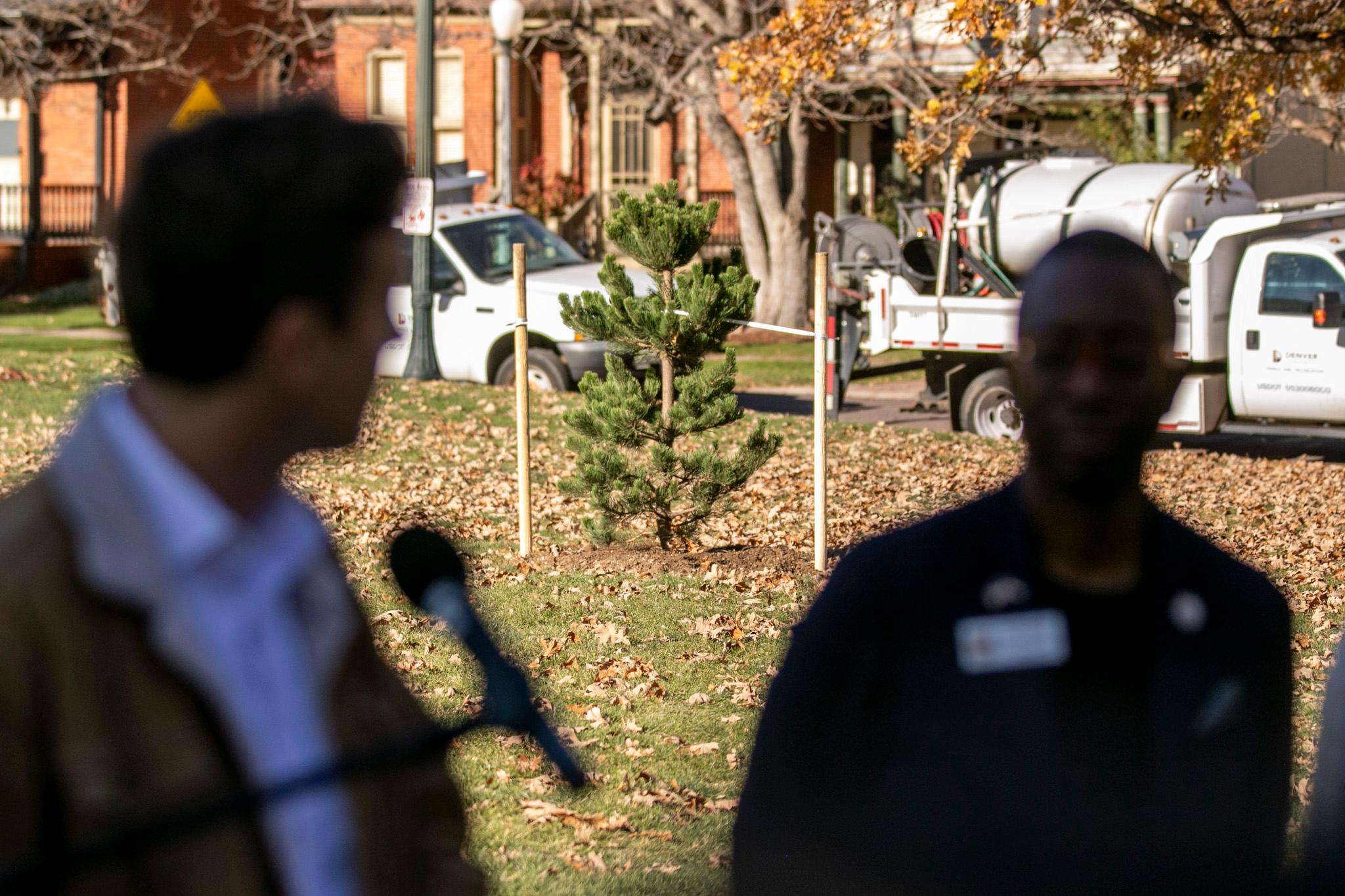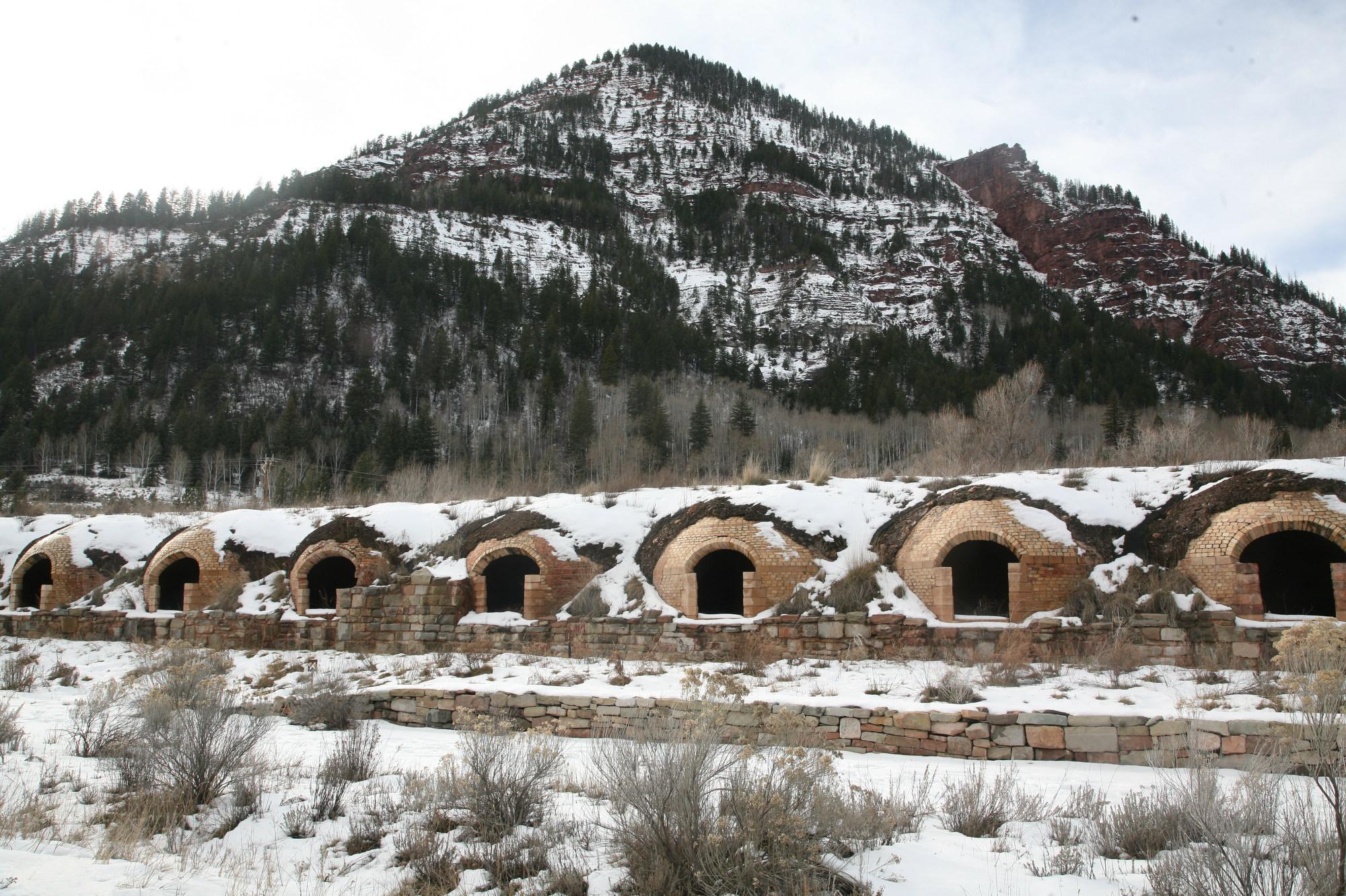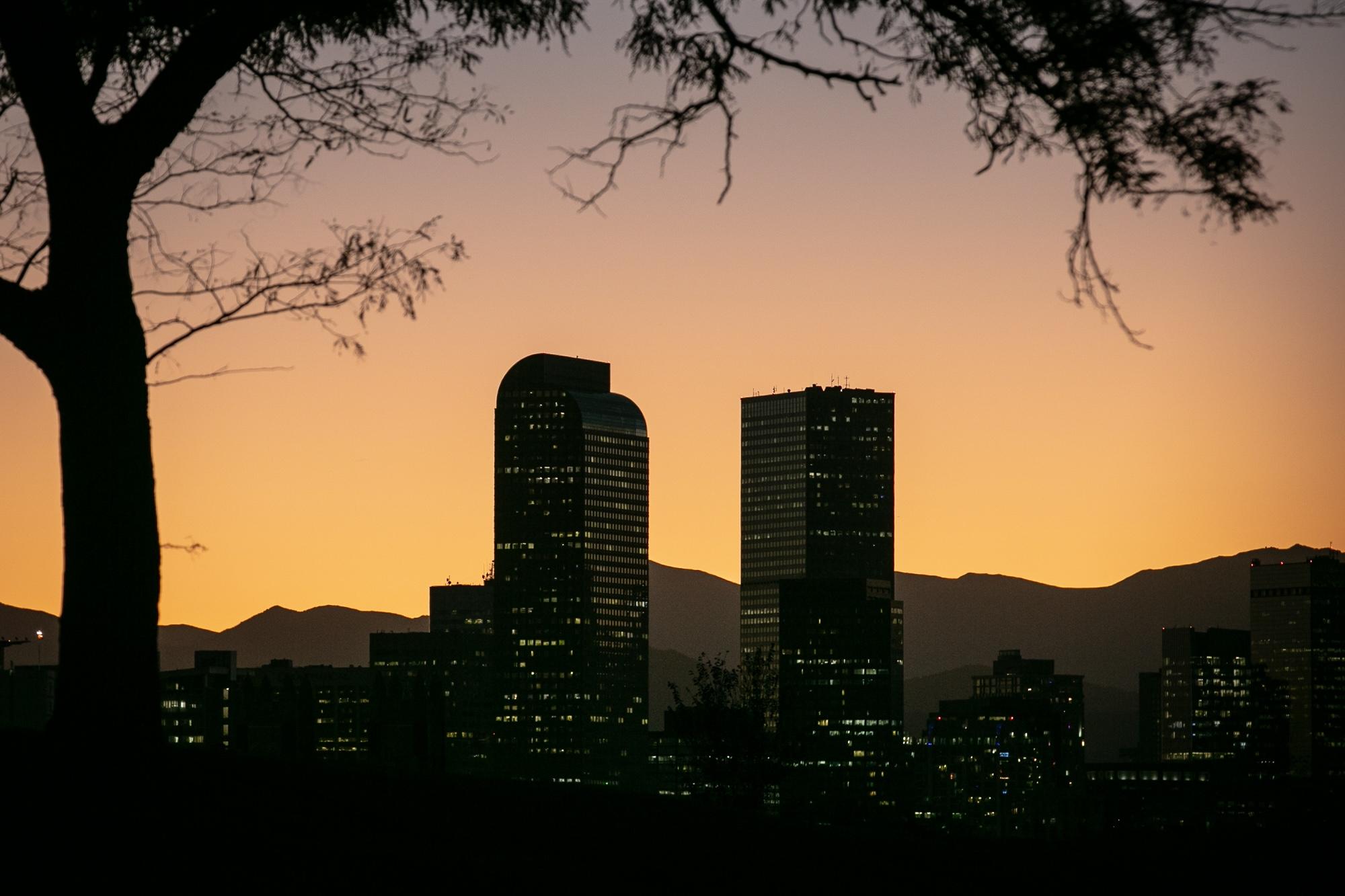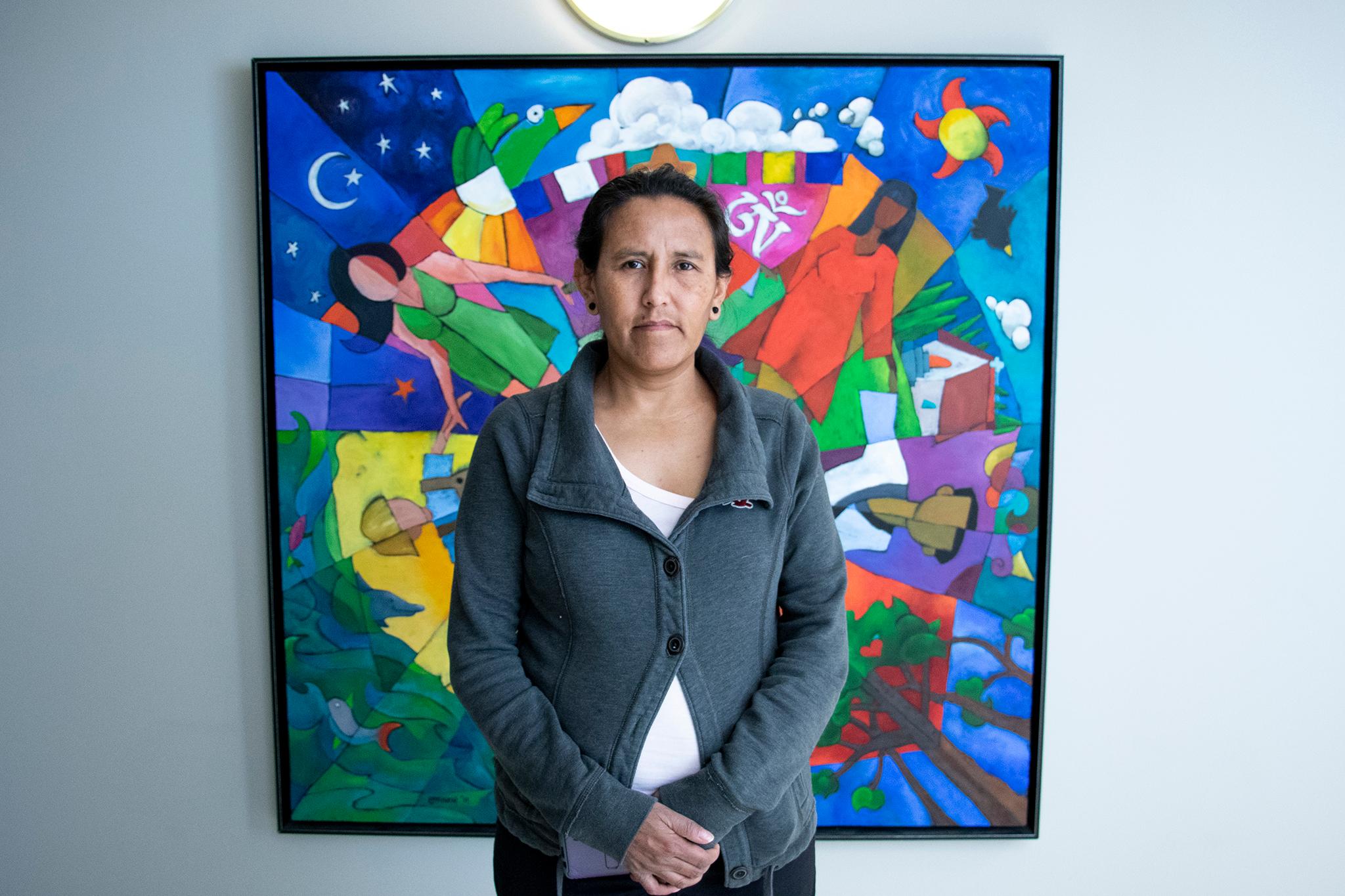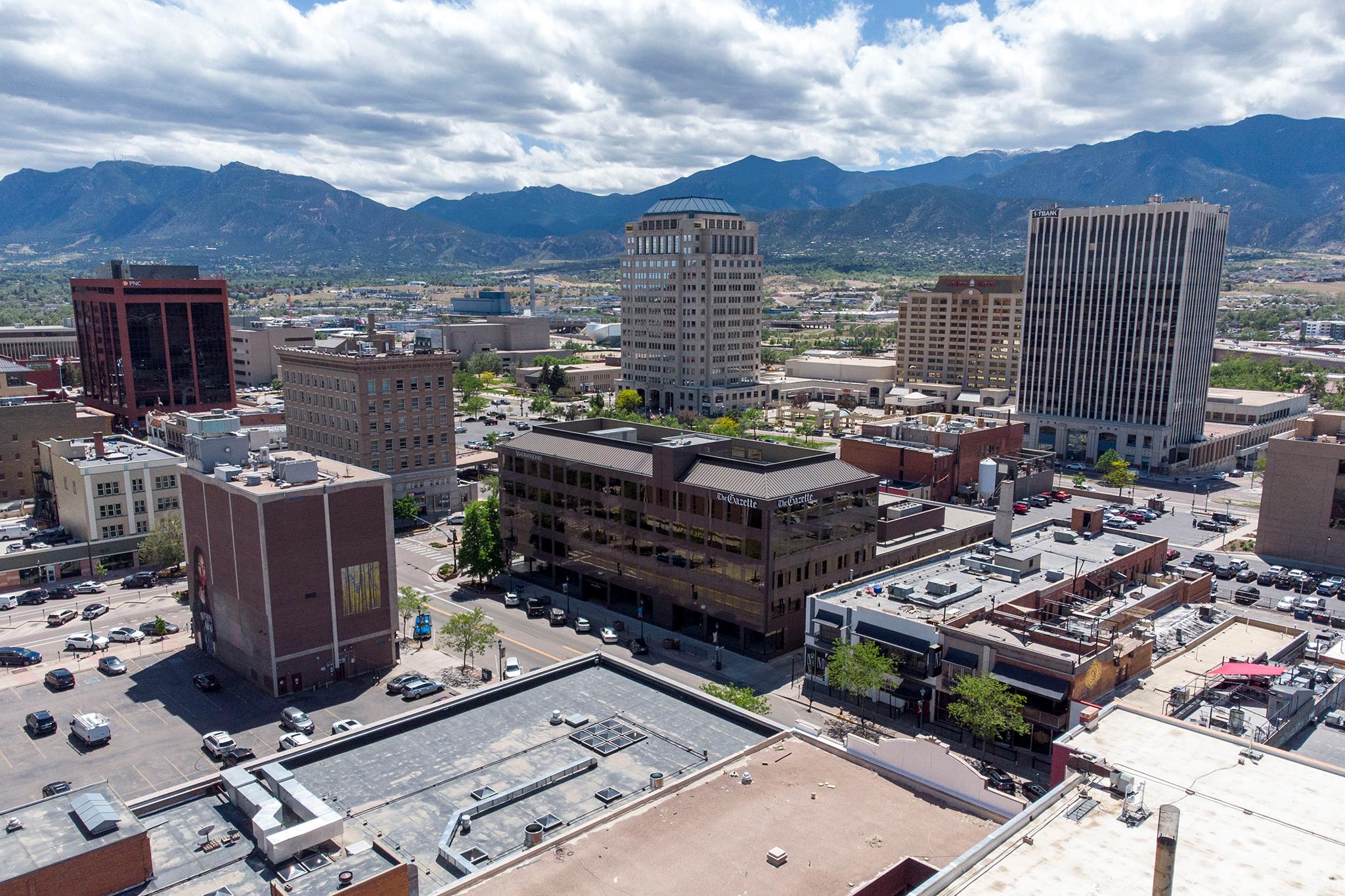
Some Colorado Springs nonprofits said they will still assist any new immigrants arriving from Denver, despite a resolution passed by the city council in February stating theirs is not a “sanctuary city.”
Nine local organizations penned a letter to city council members ahead of the council’s Feb. 13 vote on the resolution. These organizations range from immigration-focused and social justice nonprofits to church groups and the Colorado Springs chapter of the Democratic Socialists of America.
“The whole community is negatively impacted by anti-immigrant and anti-sanctuary rhetoric,” the letter reads, “which leads immigrants to distrust law enforcement and hesitate to seek help when needed.”
It represents a small — but vocal — formalized resistance in a city whose political leaders have made clear they don’t want to be saddled with the logistical and financial burden of aiding what they see as Denver’s problem.
“We are seeing plenty of community and nonprofit support,” said Nayda Benitez, Organizing Director with the Colorado Immigrant Rights Coalition. “They are willing to step up and provide essential services and really demonstrate a true spirit of compassion and solidarity.”
Unlike Denver, the need for assistance for new immigrants in Colorado Springs has not been overwhelming. While Denver has been struggling to coordinate with local nonprofits to implement its response to the approximately 40,000 new immigrants that have arrived in recent months, Colorado Springs officials said in February they knew of less than 100 newcomers moving down into the state’s second-largest city. However, they acknowledged the actual number could be different. Most only stopped through temporarily, before continuing elsewhere, city staff said.
Both the El Paso County Commission and the Colorado Springs City Council said they do not want to see local tax dollars going toward the crisis. Meanwhile, Colorado Springs Mayor Yemi Mobolade said emergency response officials are still formulating plans should any sizable number of immigrants make their way up from the U.S. southern border or down from Denver.
"The migrant crisis — quote, unquote — has the potential to further impact our area regardless of the fact that I've said repeatedly we're not a sanctuary city," Mobolade said.
For the Accompaniment and Sanctuary Coalition of Colorado Springs, a local volunteer organization that provides general assistance to immigrants, that has largely meant collecting donated winter clothing, especially for children.
“They come from warm places, and the climate here is very different,” said Phyllis Dunn, a coalition board member.
Other organizations, like the local branch of the Salvation Army, also said they have provided services to the small number of arrivals in Colorado Springs.
Benitez said her organization has been working with the Colorado Democratic Latino Caucus to focus on integrating the new arrivals, wherever they land in the state.
“We are talking about ways to hold…community conversations between immigrants that have been long established in Colorado and new arrivals or newcomers,” she said. “Because even among them there is some tension and misunderstandings.”
Residents in many Colorado communities have voiced opposition to offering tax-payer-funded services to new arrivals. And elected officials in these communities said they are reflecting the voter's wishes.
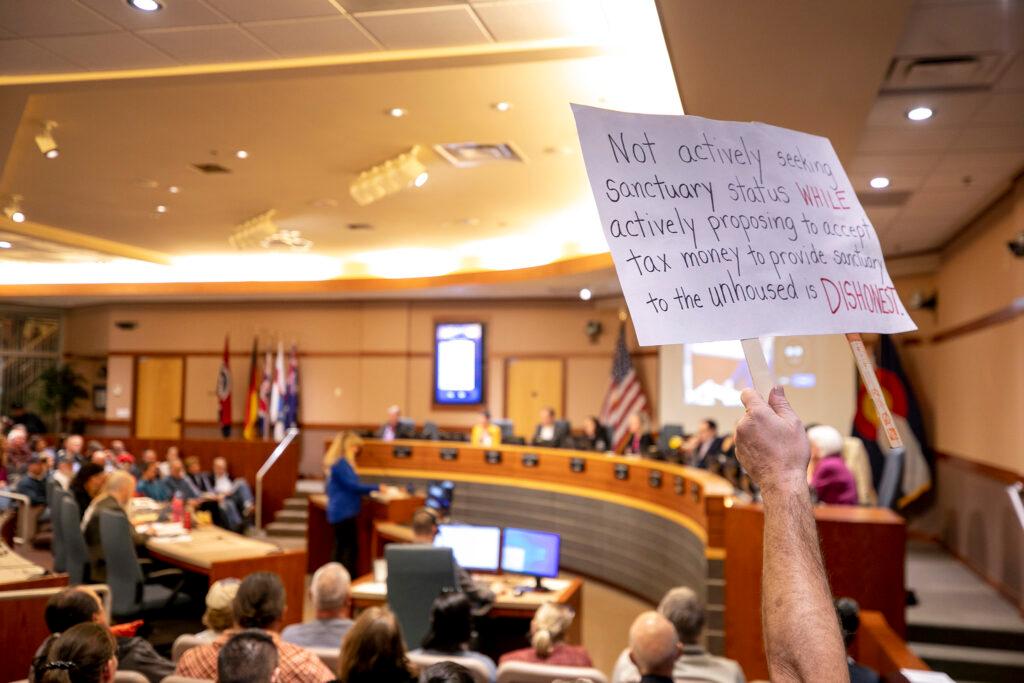
During the approximately three hours of public comment on the Colorado Springs anti-sanctuary city resolution, plenty of residents spoke in favor of the measure. Jean Hamilton told council members that while she is in favor of lawful immigration, she worries that a potential wave of new immigrants will have a detrimental impact on public safety.
“It is our poor, our homeless, our down and out that will pay the heaviest price,” Hamilton said. “It is clear Colorado Springs doesn’t have the bandwidth to handle any influx of illegal immigration.”
But Hamilton and those in favor of the resolutions were far outnumbered by residents who described it as a “fear-mongering” political statement.
“The people we assist move on to become contributing members of society,” Dunn told the council, “Just as our own ancestors did when they sought refuge in the United States.”
Advocates say new immigrants in the most recent wave need assistance, not sanctuary
Dunn joined the All Souls Unitarian Church in the city’s downtown after hearing of the Sanctuary Coalition, which began in 2017. The group formed in response to an expected increase in the deportation of undocumented immigrants under the Trump Administration.
As the data would later show, the administration’s stated policy goal of ramping up deportations ended up being fairly modest.
Nevertheless, Immigration and Customs Enforcement (ICE) under Trump made greater use of immigrant detention and gained a reputation for being unpredictable in its enforcement action. The coalition originally sought to provide a safe house for those at direct risk of such removal by ICE.
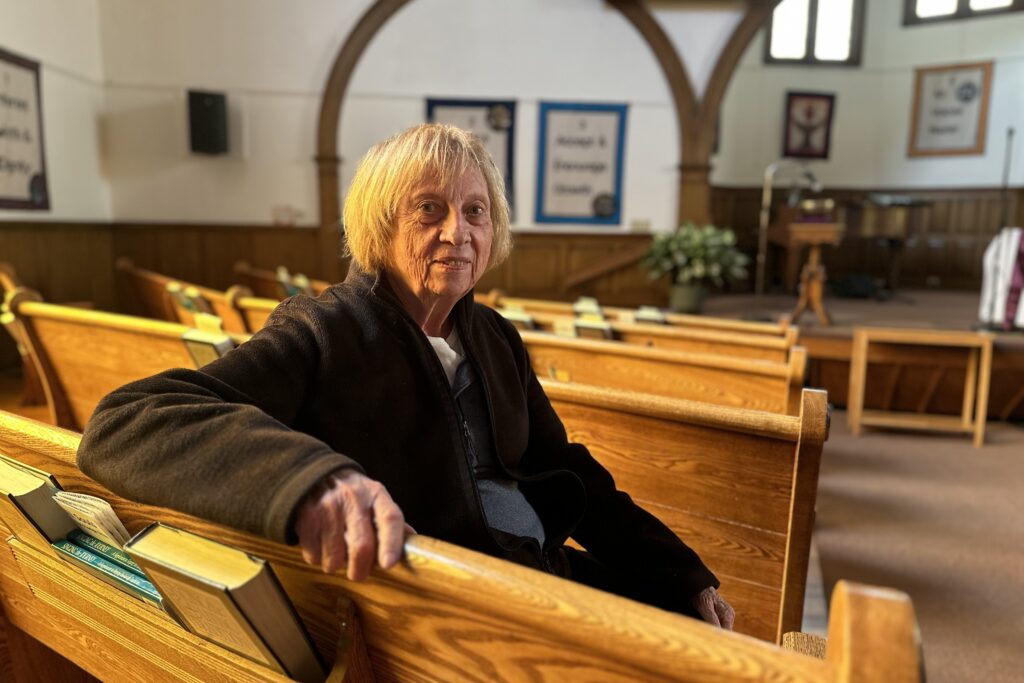
On a recent tour of the All Souls basement, Dunn showed how old classroom space had been converted to living spaces capable of housing a small number of undocumented immigrants for extended periods. ICE officers follow a longstanding policy of not entering what are deemed “protected locations” like schools, hospitals, and churches for enforcement actions.
However, Dunn does not expect the church will be used to provide such sanctuary for any new immigrants from Denver, because the vast majority of them followed the legal processes currently in place at the border to enter and seek asylum.
“We’re only willing to keep them here in the sanctuary if they are in direct removal proceedings,” she said. “That is not the case with these people.”
Editor's Note: This story has been updated to reflect that the city of Colorado Springs passed its resolution in February, not January as originally stated.
- Cities across Colorado rush to counter rumors of supporting new immigrants
- New Immigrants arrive in Denver — how the city, community, and nonprofits are stepping up to help.
- A beloved Arvada garden center hired new immigrants with work permits. Then came the anti-immigrant blowback
- ‘I expected more’: Denver leaders disappointed by governor, other cities’ response to immigration crisis

